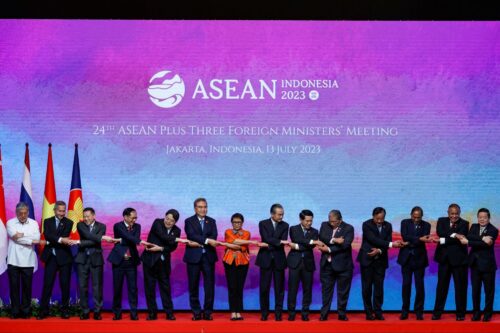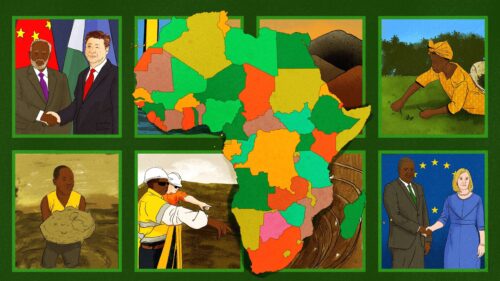China’s overseas loans actually do have strings attached, study finds
Contracts for Chinese overseas lending tend to have “unusually broad confidentiality clauses” and require priority repayment to lenders, a new study has found. The strings attached to China’s loans complicate international debt negotiations during the pandemic.

For many years, particularly when conducting diplomacy with developing countries in Africa and other regions, Beijing has boasted of a “no strings attached” approach to foreign lending. Many countries enthusiastically accepted Chinese loans under the promise that China would quickly build infrastructure — which it did — while not requiring governance changes or tedious reporting requirements, unlike most loans from the U.S., Europe, and some multilateral institutions.
- From 2013 to 2016, for example, the China Development Bank and the Export-Import Bank of China together lent more money than the World Bank.
- That lending has tapered off in recent years, multiple studies have indicated, as the risk of debt has piled up, and China has shifted its economic development model more toward domestic consumption.
- Some observers, particularly U.S. politicians, accused China of “debt-trap diplomacy” as some overseas investments ran into trouble and Beijing stepped in to seize collateral, most famously in Sri Lanka. But many scholars consider the fears of China’s exploitation to be unfounded, even in the Sri Lanka case.
But there are strings attached to Chinese overseas lending. In what the authors of a new study describe as the “first systematic analysis of the legal terms of China’s foreign lending,” the AidData research lab at William & Mary, the Center for Global Development, the Kiel Institute for the World Economy, and the Peterson Institute for International Economics found:
- “China’s contracts contain unusually broad confidentiality clauses, which prevent borrowers from revealing the terms or sometimes even the existence of the loans.”
- Chinese loan contracts often “position Chinese state-owned banks as senior creditors whose loans should be repaid on a priority basis.”
- “China’s contracts also give it broad latitude to cancel loans or accelerate repayment if it disagrees with a borrower’s policies.”
The study, conducted over a 36-month period, collected 100 Chinese contracts to 24 countries into a dataset and compared them with 142 contracts from other major lenders. While the 100 contracts are just a fraction of the estimated 2000 or more that have been signed in recent decades, the authors write that their sample is “sufficiently large to make clear that Chinese entities use standardized contracts, and to identify a handful of prevalent contract forms.”
What other implications?
- Complications to international debt restructuring: “Close to three-quarters of the contracts contain what the report terms ‘no Paris Club’ clauses, which expressly commit the borrower to exclude the debt from restructuring by the Paris Club of official bilateral creditors,” the Financial Times reports, noting that some bondholders entangled in Zambia’s ongoing financial crisis had already “resisted a reduction in their interest payments because they suspected the savings would be used to service the country’s Chinese debts.”
- Possible contradiction with G20 commitments: While Scott Morris, a co-author on the report, told Reuters that while China might simply not enforce the priority basis repayment clauses if push came to shove, such an arrangement would in practice contradict China’s agreement with the G20 group of major economies on a “common framework” for poorer nation debt relief during the COVID-19 pandemic.
- Blurring the lines between state and commercial debt: Deutsche Welle notes that China’s loans appear to differ “in their use of unique provisions that, while perhaps standard in the context of commercial debt, take on a greater significance when it comes to lending between governments.”
See also:
- UN chief warns of coming debt crisis for developing world / FT (paywall)
António Guterres, secretary-general of the UN: “The response to COVID and to the financial aspects [of the crisis] has been fragmented, and geopolitical divides are not helping…It has been too limited in scope and too late.” - New CARI report on Chinese lending to Africa doesn’t “tell the whole story” says well-known Chinese analyst / China-Africa Project (paywall)
- Thread by economist Michael Pettis on Twitter: “In the early stages of the lending, when underlying conditions were good and commodity prices rising, Chinese investors, like all of their predecessors, thought they had discovered a new, better way to invest in riskier countries…But at some point — in this case I suspect it happened with Venezuela around 2014-15 — they suddenly discovered what everyone else already knew about the difficulty of financing development projects.”
- China wants to become a major player in international aid / China in Africa Podcast via The China Project






